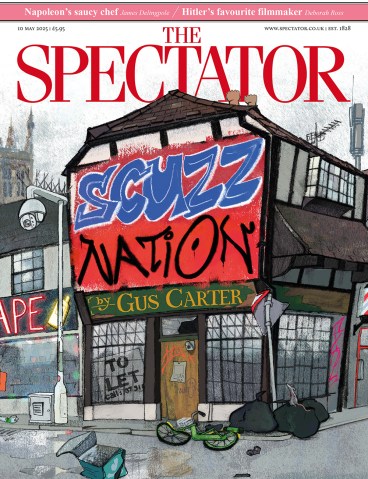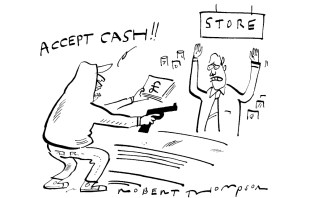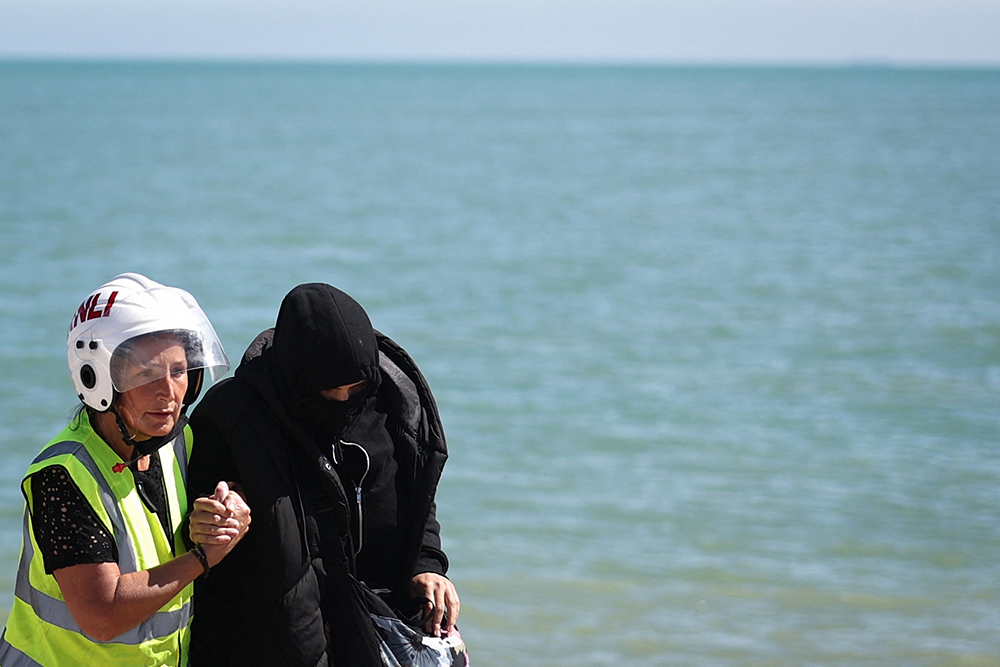
Halfway through The Shawshank Redemption, Andy and Red, sitting in their filthy prison yard, discuss hope. Red thinks it’s a dangerous thing, which can lead to despair if not fulfilled. But Andy insists on hoping for freedom, and his hope is finally rewarded.
The astonishing thing about the migrants and refugees Horatio Clare meets in this short, powerful book – Sudanese, Afghans, Iraqis, Iranians, Ethiopians, Pakistanis, Moroccans, Syrians and Yemenis in Dover, Calais, Falmouth and Portland – is that, despite being some of the most helpless and vulnerable people in the world, most have not lost hope. In Calais’s fenced and guarded camps, the soundtrack is laughter. Clare wants to know how this can be, and, specifically, why anyone would want to risk his life on a ‘death-trap dinghy’ to reach, of all places, England.
It is, on the face of it, a mystery. The gulls wheeling round Dover should be screaming ‘Go back! Go back!’ if you consider the monstrous behaviour of some of our politicians, which Clare revisits. Nigel Farage accuses the RNLI of ‘acting like a taxi service for migrants’. (But the lifeboatmen continue their rescue work: ‘Sometimes we’re so busy we don’t even count them,’ a spokesman says.) Lee Anderson suggests that any migrants unhappy once in England should ‘fuck off back to France’. This is the kind of comment that encourages jet-ski teams to plough out into the Channel and engage in ‘pushbacks’, ramming overloaded inflatables crammed with people, some of whom can’t swim. As immigration minister, Robert Jenrick visits a reception centre for unaccompanied children seeking asylum, spots Disney characters on the walls and orders they be painted over because they are ‘too welcoming’.
Then there’s the Bibby Stockholm – the colossal, sinister, engineless barge designed to offer better value for money than hotels in accommodating asylum seekers. Clare recalls how, in December 2023, Leonard Farruku, a 27-year-old Albanian who had paid €4,000 to cross the Channel, hanged himself in the showers, having told his sister in Italy he was being treated ‘like an animal’. It’s easy for asylum seekers to seem a faceless, threatening mass – men and women with dark hair and orange life jackets, some wrapped in blankets, some carrying children, some children themselves. Through stories like Farruku’s, Clare reminds us that they are individuals. As Pope Francis said: ‘Every migrant has a name, a face, and a story.’ Farruku’s family were refused Home Office funding to repatriate his body to Albania, so his sister set up a GoFundMe page. ‘Please know,’ wrote Matthew Styles, donating £5, ‘most decent British people would never want or allow this.’
And here’s the answer to Clare’s question. For, despite the shameful politicians, the reporters from GB News and outsourcing companies such as Mitie Care and Custody, for whom migrants are a golden goose that keeps on giving, at grassroots level he finds British people filled with compassion, generosity and courage. And these are the qualities that make asylum seekers believe that England is a kind country, a fair country, a country that will welcome them, treat them well, educate their children (sign them up to good benefits packages too, perhaps, but Clare doesn’t mention this).

A quarter of Brits – more than 12 million people – engage in some form of voluntary work, and Clare introduces us to selfless and resourceful men and women who have dropped everything to help those arriving in small boats. They include the Liverpool accountant Clare Mosley, founder of Care4Calais, whose lawyers have stopped deportation flights, prevented people being transferred to barges, pursued French and British authorities over what they did or did not do when people drowned at sea, and taken the government to court over the conditions in which asylum seekers are held in barracks. This work, Mosley says, is in even greater demand in Britain than in France.
This is not one-way charity with no reward, Clare argues. It makes hard-headed sense. Our country has a labour shortage, a falling birth rate and an economy which could benefit from the efforts and industry of the people arriving on our beaches. Asylum seekers could help make Britain great again.
There is an obvious sequel to this book – one that would follow the lives of those granted asylum, ask whether they are flourishing and, crucially, how their arrival has affected the communities among whom they are now living. But this is probably not a book for Horatio Clare. His job, executed wonderfully well, is to help us to think calmly and intelligently about those arriving in small boats, to consider giving them a chance and to recognise that we have more in common with them than we might imagine. As a young Sudanese web designer tells him in a camp in Calais: ‘God makes some people rich, some poor, but we can all hope.’







Comments